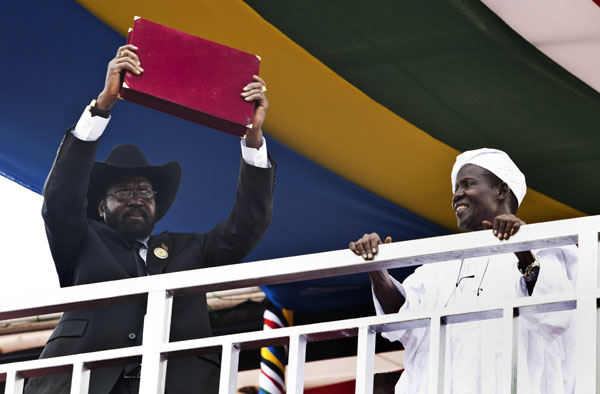
In a new policy brief, “Is Time Running Out for South Sudan’s New Constitution?” Enough Project Sudan Analyst Jenn Christian examines the ongoing process of drafting a permanent constitution in the young nation of South Sudan.
South Sudan’s Transitional Constitution was drafted and promulgated before South Sudan formally gained its independence on July 9, 2011. It mandates the establishment of a National Constitutional Review Commission, or NCRC, within six months of independence. Accordingly, President Salva Kiir formed the NCRC on January 9, 2012. Under its mandate, the NCRC is responsible for providing civic education and conducting popular consultations regarding the current South Sudanese government and the Transitional Constitution, ultimately incorporating the people’s views into a final Draft Constitutional Text and Explanatory Note, which must be submitted to the president within a year.
Yet now, six months on, the NCRC has made little headway towards accomplishing its mandated tasks. The NCRC has not initiated a civic education program, begun popular consultations, or even finalized its rules of procedure—despite an outpouring of support from the international community. It now appears virtually impossible for the commission to accomplish its goals before the deadline in January.
This delay becomes especially troubling when one considers the lack of public input in the formation of the Transitional Constitution. By failing to incorporate the views of the South Sudanese people in the drafting process, the NCRC risks opening up the resultant constitution to intense criticism from civil society, the political opposition, and the international community. Without transparency and popular support, the international community may view the final as an “SPLM constitution,” undermining its legitimacy as the foundation of South Sudan’s legal and governance structures moving forward.
Legally, South Sudan’s legislature could extend the NCRC’s mandate by passing an amendment to the Transitional Constitution—an arduous process in its own right. But as of yet, no such amendment has been proposed.
Read the new policy brief, “Is Time Running Out for South Sudan’s New Constitution?”
Photo: South Sudan President Salva Kiir holds up the new country's constitution on Independence Day, July 9, 2011 (AP)

